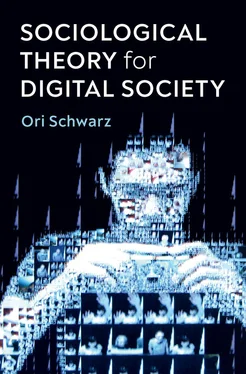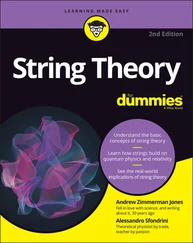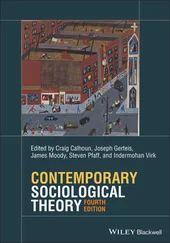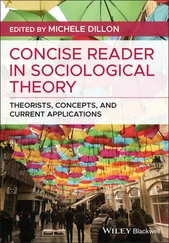1 Title page Sociological Theory for Digital Society The Codes that Bind Us Together Ori Schwarz polity
2 Copyright page
3 Acknowledgements
4 1. Introduction: Old disciplines, new times, revised theories
5 2. When Interactions Become Objects: Rethinking symbolic interactionism in the post-situational order
6 3. When Networks Materialize: Rethinking social ontology beyond the individual and the collective
7 4. When Social Capital can be Invested: Rethinking social capital
8 5. When Power is Exercised through Algorithms: Rethinking power under generative rulers
9 6. When Labour is Everywhere: Rethinking work in the era of workless labour
10 7. Conclusion: Sociological theory for the future
11 References
12 Index
13 End User License Agreement
1 Cover
2 Contents
3 1. Introduction: Old disciplines, new times, revised theories
1 iii
2 iv
3 vi
4 1
5 2
6 3
7 4
8 5
9 6
10 7
11 188
12 8
13 9
14 10
15 11
16 12
17 13
18 14
19 15
20 16
21 17
22 18
23 19
24 20
25 21
26 22
27 23
28 24
29 25
30 26
31 27
32 28
33 29
34 30
35 31
36 32
37 33
38 34
39 35
40 36
41 37
42 38
43 39
44 40
45 41
46 42
47 43
48 44
49 45
50 46
51 47
52 48
53 189
54 49
55 50
56 51
57 52
58 53
59 54
60 55
61 56
62 57
63 58
64 59
65 60
66 61
67 62
68 63
69 64
70 65
71 66
72 67
73 68
74 69
75 70
76 71
77 72
78 73
79 74
80 75
81 76
82 77
83 78
84 79
85 80
86 81
87 82
88 83
89 84
90 85
91 86
92 87
93 190
94 191
95 88
96 89
97 90
98 91
99 92
100 93
101 94
102 95
103 96
104 97
105 98
106 99
107 100
108 101
109 102
110 103
111 104
112 105
113 106
114 107
115 108
116 109
117 110
118 111
119 112
120 113
121 114
122 192
123 115
124 116
125 117
126 118
127 119
128 120
129 121
130 122
131 123
132 124
133 125
134 126
135 127
136 128
137 129
138 130
139 131
140 132
141 133
142 134
143 135
144 136
145 137
146 138
147 139
148 140
149 141
150 142
151 143
152 144
153 145
154 146
155 147
156 148
157 149
158 150
159 151
160 152
161 153
162 154
163 155
164 156
165 193
166 194
167 157
168 158
169 159
170 160
171 161
172 162
173 163
174 164
175 165
176 166
177 167
178 168
179 169
180 170
181 171
182 172
183 173
184 174
185 175
186 176
187 177
188 178
189 179
190 180
191 181
192 182
193 195
194 183
195 184
196 185
197 186
198 187
199 196
200 197
201 198
202 199
203 200
204 201
205 202
206 203
207 204
208 205
209 206
210 207
211 208
212 209
213 210
214 211
215 212
216 213
217 214
218 215
219 216
220 217
221 218
222 219
223 220
224 221
225 222
Sociological Theory for Digital Society
The Codes that Bind Us Together
Ori Schwarz
polity
Copyright © Ori Schwarz 2021
The right of Ori Schwarz to be identified as Author of this Work has been asserted in accordance with the UK Copyright, Designs and Patents Act 1988.
First published in 2021 by Polity Press
Polity Press
65 Bridge Street
Cambridge CB2 1UR, UK
Polity Press
101 Station Landing
Suite 300
Medford, MA 02155, USA
All rights reserved. Except for the quotation of short passages for the purpose of criticism and review, no part of this publication may be reproduced, stored in a retrieval system or transmitted, in any form or by any means, electronic, mechanical, photocopying, recording or otherwise, without the prior permission of the publisher.
ISBN-13: 978-1-5095-4296-3
ISBN-13: 978-1-5095-4297-0 (pb)
A catalogue record for this book is available from the British Library.
Library of Congress Cataloging-in-Publication Data
Names: Schwarz, Ori, 1979- author.
Title: Sociological theory for digital society : the codes that bind us together / Ori Schwarz.
Description: Cambridge, UK ; Medford, MA : Polity Press, 2021. | Includes bibliographical references and index. | Summary: “How to rethink social theory in our digital times”-- Provided by publisher.
Identifiers: LCCN 2021005391 (print) | LCCN 2021005392 (ebook) | ISBN 9781509542963 (hardback) | ISBN 9781509542970 (hardback) | ISBN 9781509542987 (epub)
Subjects: LCSH: Sociology. | Information society. | Online social networks. | Information technology--Social aspects.
Classification: LCC HM585 .S3776 2021 (print) | LCC HM585 (ebook) | DDC 303.48/33--dc23
LC record available at https://lccn.loc.gov/2021005391
LC ebook record available at https://lccn.loc.gov/2021005392
Typeset in 10.5 on 12.5pt Sabon
by Fakenham Prepress Solutions, Fakenham, Norfolk NR21 8NL
Printed and bound in the UK by TJ International Ltd
The publisher has used its best endeavours to ensure that the URLs for external websites referred to in this book are correct and active at the time of going to press. However, the publisher has no responsibility for the websites and can make no guarantee that a site will remain live or that the content is or will remain appropriate.
Every effort has been made to trace all copyright holders, but if any have been overlooked the publisher will be pleased to include any necessary credits in any subsequent reprint or edition.
Jacket image © Robert Hodgin. This digital mirror objectifies social life, bringing together images taken in different times to create a digitally curated representation of the self.
For further information on Polity, visit our website: politybooks.com
Over the years I discussed the ideas and arguments developed in this book with many people. I am grateful to all of them, but I am especially indebted to Rogers Brubaker and Dan Kotliar, who closely read earlier drafts of the manuscript. This book has been enormously improved by their smart comments and generous suggestions, as well as by the helpful feedback and suggestions of the anonymous readers for Polity, whom I also thank wholeheartedly. Some ideas presented in this book are completely new, others build on and develop insights from my earlier work on the sociology of digital society, but all of them have benefited greatly from countless conversations over the years with colleagues, including Eran Fisher, Eva Illouz and Guy Shani (with whom I co-authored an article discussed in chapter 2), and students, especially Inbar Michelzon-Drori and Sagit Festman. I could not ask for more supportive colleagues than those I have at Bar-Ilan University’s Department of Sociology and Anthropology. I also wish to thank everyone at Polity Press for their dedicated and professional support, advice and encouragement – it has been a pleasure to work with you all – and particularly to Jonathan Skerrett, who believed in this project from the very first moment, even before I did; and Fiona Sewell, for her careful copyediting. Last but not least, my love and gratitude go to Hila Keren, with whom I share my life, of which this book has happened to constitute a significant part for quite a while; her support and feedback were invaluable.
Читать дальше












